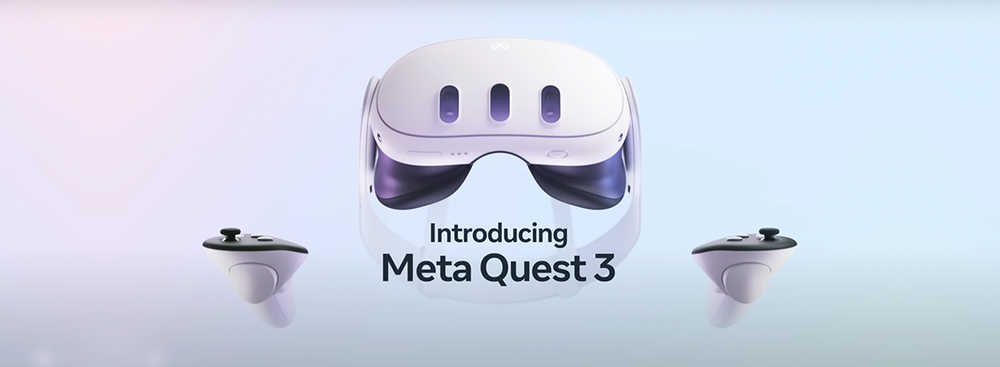Meta, the tech giant formerly known as Facebook, has officially announced its highly anticipated Quest 3 VR headset. The Quest 3 is set to release in the fall of this year and will come with a price tag starting at $499.99 for the 128GB version, with an additional storage option available for those in need of more space.
Introducing Meta Quest 3.
— Meta Quest (@MetaQuestVR) June 1, 2023
Coming this fall. Sign up for updates at: https://t.co/gt8P9KkNsd
Learn more at Meta Connect on September 27 - 28.#MetaQuest3 pic.twitter.com/CPFtGyNYC2
Compared to its predecessor, the Quest 2, the Quest 3 boasts a lighter and more comfortable design. The optic profile has been slimmed down by 40%, making it sleeker and more visually appealing. The headset is powered by a new Snapdragon chip, which provides double the graphics performance of the previous generation.
One of the major highlights of the Quest 3 is its compatibility with the Quest 2's extensive game library, featuring over 500 VR games and applications. This allows users to seamlessly transition from the Quest 2 to the Quest 3 without losing access to their favorite titles.
The Quest 3 introduces several new features and enhancements. It incorporates Meta Reality technology, which enables users to effortlessly merge the physical and virtual worlds. The device is equipped with two 4MP RGB cameras, offering improved resolution and better performance. A depth sensor has also been added to provide more accurate rendering of the gaming environment.
The Touch Plus controllers have been redesigned with a more streamlined and ergonomic shape, providing a comfortable and intuitive user experience. The new controllers feature TruTouch haptics, allowing users to feel tactile feedback during interactions. Interestingly, the Quest 3 supports hand tracking out of the box, enabling users to interact with virtual objects using their hands alone.

Meta's decision to release the Quest 3 came shortly before Apple's announcement of its long-awaited mixed reality headset. This move demonstrates Meta's commitment to maintaining its dominance in the VR market.














